
EmpowED
Welcome to EmpowEd, our blog where we share advice and resources to help empower children through education around Body Safety, Consent, Social & Emotional Intelligence, Gender Equality, Diversity and Inclusion.
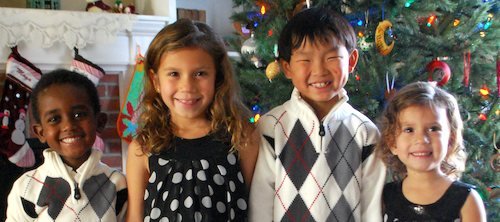
Keeping Our Kids Safe During the Holiday Season
The holiday season is upon us, and our kids are about to spend A LOT of time around people who they may not have seen for a long time due to Covid 19 restrictions — family, extended family, friends, friends of friends, acquaintances, and total strangers. They will be in amongst groups of people at family gatherings, Christmas parties, carol nights, NYE celebrations, camping grounds, parks, swimming pools, beaches (or ski resorts if you’re in the Northern Hemisphere), shopping centres, cinemas, etc. We cannot stress enough how important it is for your children to be educated in Body Safety and...
Keeping Our Kids Safe During the Holiday Season
The holiday season is upon us, and our kids are about to spend A LOT of time around people who they may not have seen for a long time due to Covid 19 restrictions — family, extended family, friends, friends of friends, acquaintances, and total strangers. They will be in...
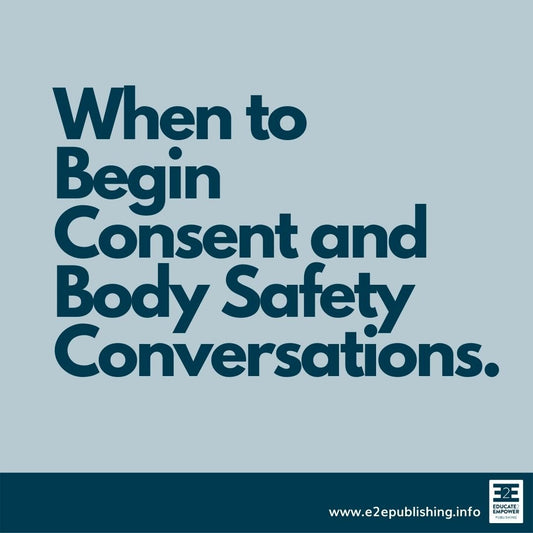
When to Begin Consent and Body Safety Conversations
We regularly get asked by parents and carers. “When should I start teaching my child about consent and body safety?” It’s an excellent question. Below is an approximate guide on when to begin conversations with your child around consent and Body Safety. All children are different, and you know your child best, so also be guided by their ability to focus and the questions they ask. These conversations are ongoing and can happen over years. Use their questions, family discussions, children’s books, and situations that may occur to have open and ongoing conversations. Everyday situations that may arise, can be...
When to Begin Consent and Body Safety Conversations
We regularly get asked by parents and carers. “When should I start teaching my child about consent and body safety?” It’s an excellent question. Below is an approximate guide on when to begin conversations with your child around consent and Body Safety. All children are different, and you know your...
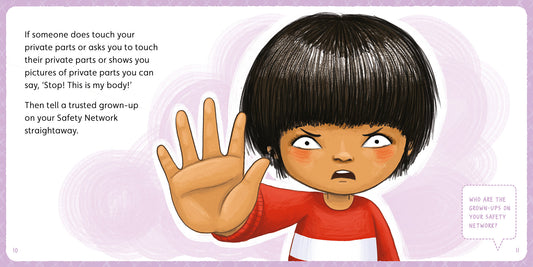
How adults show children love appropriately and safely
What still remains vivid in my mind, 12 years after starting my work in the prevention of childhood sexual abuse, were two things that I heard time and time again from survivors. He said to me, ‘This is our little secret — others won’t understand. This is how you show me you love me.’ And what was an innocent child (often quite young) to believe from the person, who in the past, had played and loved them appropriately and safely as a caregiver should? And even though they may have felt sick in their stomach and intuitively knew it was...
How adults show children love appropriately and safely
What still remains vivid in my mind, 12 years after starting my work in the prevention of childhood sexual abuse, were two things that I heard time and time again from survivors. He said to me, ‘This is our little secret — others won’t understand. This is how you show...

DIARY OF A WOMAN
I wrote this piece really for men, knowing that most likely, only women will read it. If men read it, they might realise what it's like for us, day to day. To be in our shoes. Not only do women have to cope with the majority of domestic work, pay disparity, feeling unsafe, objectification, the beauty ideal, they have to cope with not being understood by the person closest to them. Please read this piece to your male partner and tell us their response. DIARY OF A WOMAN Monday Got up at 5am. Made it to the gym by...
DIARY OF A WOMAN
I wrote this piece really for men, knowing that most likely, only women will read it. If men read it, they might realise what it's like for us, day to day. To be in our shoes. Not only do women have to cope with the majority of domestic work, pay...
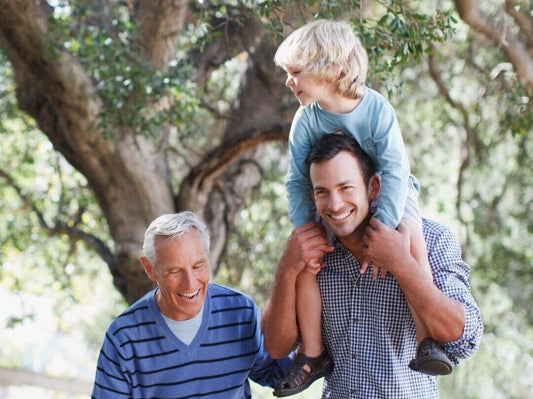
PRACTICAL TIPS FOR MEN ON SUPPORTING GENDER EQUALITY
After this morning’s conversation with my 22-year-old daughter, we concluded more and more young men want to know how they can be active participants in the journey towards gender equality. They are just stumped in how to do this without reverting to, ‘Hey! I’m a nice guy! It’s not me!’ Here are some practical tips for men on how they can modify behaviours that contribute to gender inequality so that girls and women and those who identify as female feel safe and supported. 1. Be empathic. Imagine what it’s like for women to always be on the alert. (Provide examples...
PRACTICAL TIPS FOR MEN ON SUPPORTING GENDER EQUALITY
After this morning’s conversation with my 22-year-old daughter, we concluded more and more young men want to know how they can be active participants in the journey towards gender equality. They are just stumped in how to do this without reverting to, ‘Hey! I’m a nice guy! It’s not me!’...
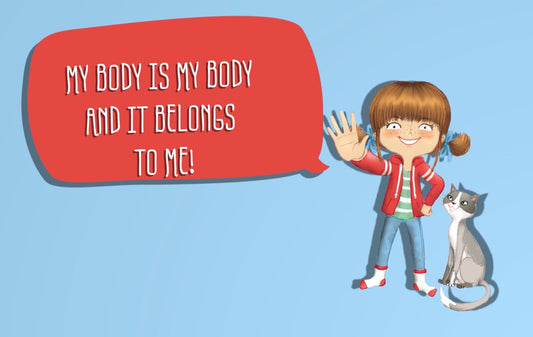
ROLE PLAY: CONSENT ‘WHAT-IFS?’
When it comes to teaching children consent, we know some parents, carers and educators are unsure where to start. Here are some ideas for role-playing different scenarios to help educate and empower children. It helps them to rehearse what to do and say in an uncomfortable situation. Practicing scenarios increases their chance of knowing exactly what to do or say if a situation does occur and lessens the likelihood of them ‘freezing’. Plus, the connection is fun! Give it a try, but before you start, make sure you decide on who is playing which part and that the child has...
ROLE PLAY: CONSENT ‘WHAT-IFS?’
When it comes to teaching children consent, we know some parents, carers and educators are unsure where to start. Here are some ideas for role-playing different scenarios to help educate and empower children. It helps them to rehearse what to do and say in an uncomfortable situation. Practicing scenarios increases...
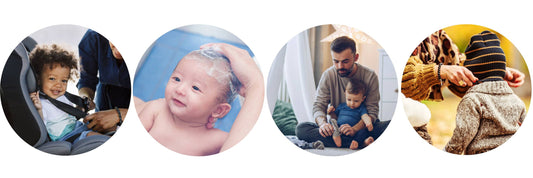
What CONSENT looks like with a non-verbal child
Teaching consent with a non-verbal child is about respecting their body boundary and explaining to them what you are doing as you interact with them. Here are some examples: “I’m just going to pop you in the car seat so you will be safe. This won’t take long. I will need you to move your arms up so I can fit the straps over them. We did it! Thank you so much!” “See this big bottle. This is shampoo. I’m just going to wash your hair with the shampoo so your hair smells fresh and clean.” “Oh look! These are...
What CONSENT looks like with a non-verbal child
Teaching consent with a non-verbal child is about respecting their body boundary and explaining to them what you are doing as you interact with them. Here are some examples: “I’m just going to pop you in the car seat so you will be safe. This won’t take long. I will...
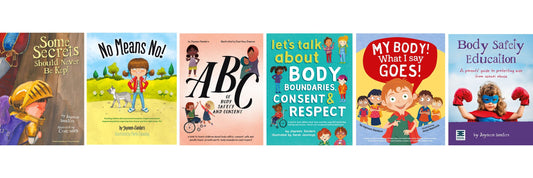
Consent should be taught to children as soon as they begin to speak
Our favourite award-winning author, educator and advocate, Jayneen Sanders passionately believes children should be taught consent as early as two years of age, or as soon as a child begins to speak. She fiercely believes that teaching these crucial concepts to children from an early age will help them develop self-confidence and forge respectful relationships as teenagers and then adults, and be more considerate and empathetic individuals knowing that everyone has the right to feel safe. Jayneen has actively advocated for body safety, gender equality and respectful relationship education being taught both in homes and in schools for over twelve years....
Consent should be taught to children as soon as they begin to speak
Our favourite award-winning author, educator and advocate, Jayneen Sanders passionately believes children should be taught consent as early as two years of age, or as soon as a child begins to speak. She fiercely believes that teaching these crucial concepts to children from an early age will help them develop self-confidence...
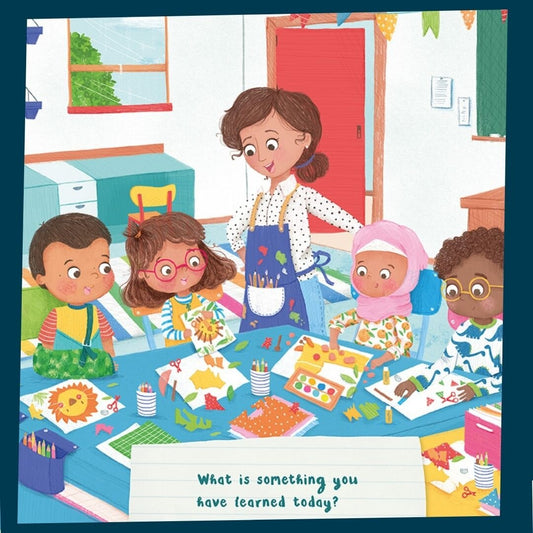
How and Why to Avoid Asking 'Why?' in the Classroom
When questioning children on their thoughts, feelings and actions, try to avoid the use of the word ‘why’. There are two main reasons for this. Firstly, ‘why’ holds negative connotations for many children. For example, when they’ve done something wrong, the first question that many people ask is, ‘Why did you do that?’ Secondly, ‘why’ is a very difficult question to answer — it requires us to look at the motivations behind our actions and feelings, which a lot of children won’t know — and will simply respond with ‘I don’t know’. Instead, re-phrase questions using ‘how’ or ‘what’ —...
How and Why to Avoid Asking 'Why?' in the Classroom
When questioning children on their thoughts, feelings and actions, try to avoid the use of the word ‘why’. There are two main reasons for this. Firstly, ‘why’ holds negative connotations for many children. For example, when they’ve done something wrong, the first question that many people ask is, ‘Why did...
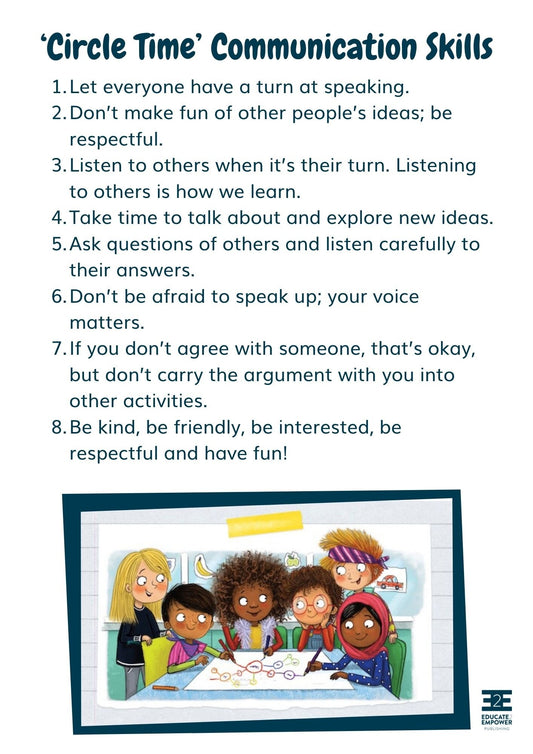
How to Conduct ‘Circle Time’ in the Classroom
‘Circle Time’ is a valuable classroom practice to settle the class and touch base with how students are travelling each day. Given that we are still in the midst of a global pandemic, this is a great exercise for creating and maintaining open communication within the classroom - both peer-to-peer as well as between teacher and students. During Circle Time, students each take turns to share their ideas and thoughts on a given discussion topic. Only one person speaks at a time — you may use a ‘talking stick’ like a soft toy to monitor who is the active...
How to Conduct ‘Circle Time’ in the Classroom
‘Circle Time’ is a valuable classroom practice to settle the class and touch base with how students are travelling each day. Given that we are still in the midst of a global pandemic, this is a great exercise for creating and maintaining open communication within the classroom - both peer-to-peer...
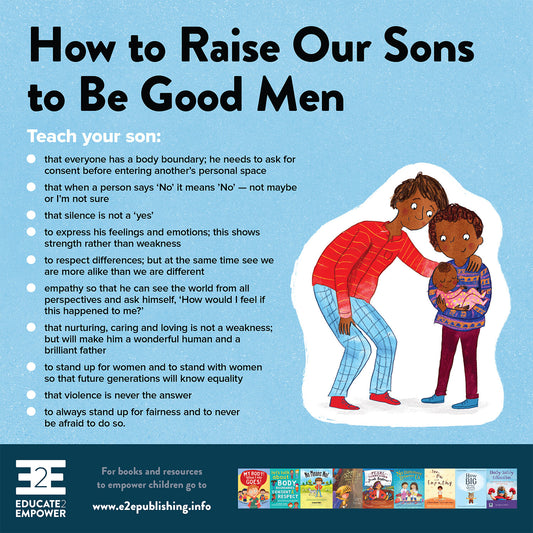
Raising 'Good' Boys
As parents we are well versed in the age old art of worrying. From the moment we realise we are going to become a mother or father our excitement is also mixed with apprehension. Will I be a good parent? What if I get it wrong? What if I mess them up? As a mother of both a son and daughter, I feel the burden of responsibility weighing more heavily in regard to raising my son. We often hear parents expressing their concern for their daughters – their safety, and how they will be treated by boys and men. And...
Raising 'Good' Boys
As parents we are well versed in the age old art of worrying. From the moment we realise we are going to become a mother or father our excitement is also mixed with apprehension. Will I be a good parent? What if I get it wrong? What if I mess...
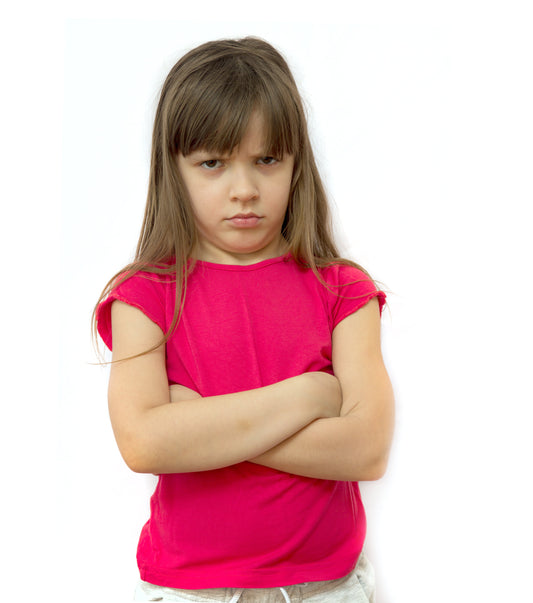
I'm NOT Sorry!
“Bess,” said Nana. “Say sorry.” “But I’m NOT sorry,” replied Bess. “Ty pushed me off the swing, so I pushed him back.” We’ve heard it all before — girls, from a young age, told to say sorry. To be polite. To have their manners. To be a good girl. To cause no waves. To keep the peace. But what if they’re NOT sorry? What if they were simply standing up for their rights? What if they didn’t like what the person had said or done to them? What if they wanted to use THEIR voice? Times...
I'm NOT Sorry!
“Bess,” said Nana. “Say sorry.” “But I’m NOT sorry,” replied Bess. “Ty pushed me off the swing, so I pushed him back.” We’ve heard it all before — girls, from a young age, told to say sorry. To be polite. To have their manners. To be a good...